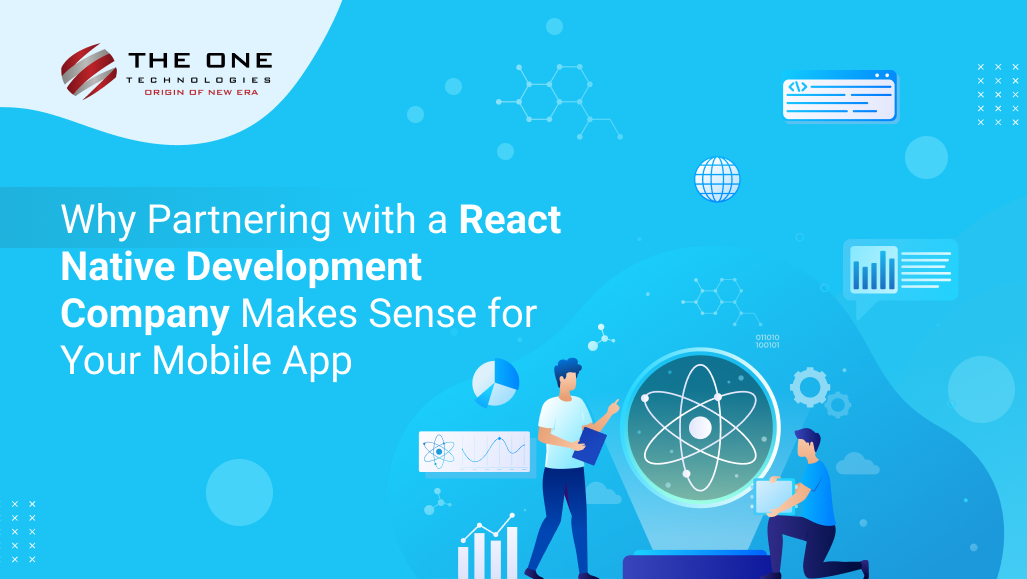Why Businesses Choose React Native Development Companies for Mobile App Success

So you’ve got this killer app idea, right? But here's the thing, building it for both iOS and Android sounds like a nightmare. Double the code, double the developers, double the budget. What if there were a smarter way? Enter React Native, the framework that lets you build once and deploy everywhere. But unless you’ve got a team of React Native wizards in-house (and let's be honest, most of us don’t), hiring a React Native development company might just be your best move.
Here's why, straight from someone who's seen too many startups waste time and money reinventing the wheel.
Wait, What Even Is React Native?
In case you’re not knee-deep in tech jargon, here's the gist: React Native is Facebook's brainchild that lets developers write one codebase that works on both iOS and Android. No more maintaining two separate apps. No more begging your iOS dev to explain why the Android version keeps crashing. It's like having a universal remote for your app development, except it actually works.
1. One Codebase to Rule Them All
Here's the kicker: traditional app development means building two entirely separate apps. One in Swift for Apple fans, another in Kotlin for the Android crowd. That's twice the headaches, twice the bugs, and you guessed it, twice the cost. React Native flips the script. Write once, run everywhere.
What does that mean for you:
- Faster development (because, well, you’re only building one app)
- Lower costs (no need to hire two separate dev teams)
- Easier updates (fix a bug once, and it's fixed everywhere)
Real talk: Imagine launching a food delivery app. With React Native, your dev team builds it once, and boom - it works on iPhones and Galaxies. No favoritism.
2. Launch Faster (Like, Way Faster)
Ever heard of hot reloading? It's React Native's secret sauce. Developers can tweak code and see changes instantly. No waiting around for the app to rebuild.
This means:
- Faster prototyping (test ideas before you bet the farm on them)
- Quicker bug fixes (because glitches happen, and users are not patient)
- Speedier MVPs (get something in users’ hands before your competitors do)
Pro tip: Startups live or die by speed. The faster you validate your idea, the sooner you can pivot or pour gas on what's working.
3. Save Money Long-Term (Because Apps Aren’t a One-and-Done Deal)
Building an app is just the beginning. Maintaining it? That's where the real costs pile up. With separate iOS and Android apps, every update means double the work. New feature? Code it twice. Security patch? Deploy it twice. It's like paying rent on two apartments when you only need one. React Native cuts that nonsense out. One update covers both platforms.
Bottom line: More money in your pocket for things that actually grow your business, like marketing or, I dunno, maybe paying yourself.
4. It Feels Native (Because Users Hate Laggy Apps)
Some folks think React Native apps are just glorified web pages. Nope. They use real native components, so your app feels snappy, like it was built specifically for each platform.
We’re talking:
- Smooth animations (no janky transitions)
- Fast performance (users bounce if your app feels slow)
- Native UI elements (so it looks right on iOS and Android)
Fun fact: Big names like Facebook and Airbnb use React Native for parts of their apps. If it's good enough for them…
5. Hiring Devs Is Easier (Because JavaScript Is Everywhere)
Finding skilled iOS and Android devs? Tough. Finding React Native devs? Way easier. Since React Native runs on JavaScript (you know, the language half the internet is built on), there's a huge pool of talent. That means:
- Faster hiring (no six-month searches for that elusive Swift expert)
- Easier scaling (need more hands? JavaScript devs are everywhere)
- Lower risk (if one dev leaves, finding a replacement isn’t a nightmare)
Side note: Working with a React Native company? Even better. You get a whole team that's done this before, no trial and error.
6. Tons of Ready-Made Parts (Because Nobody Likes Reinventing the Wheel)
React Native's ecosystem is stacked with pre-built components. Need a slick login screen? There's a library for that. GPS integration? Probably five libraries for that.
This means:
- Faster development (why build from scratch when you can plug and play?)
- More features (without writing every single line of code yourself)
- Fewer headaches (because debugging custom GPS code sounds like a bad time)
7. It's Not Just Code, It's a Business Strategy
A good React Native development company doesn’t just churn out code. They help you:
- Align features with what actually grows your business
- Build an app that scales (so it doesn’t crumble when you hit 10k users)
- Keep improving post-launch (because apps rot if you ignore them)
Think of it like this: You’re not just buying an app. You’re buying a business asset.
Real-World Example
Picture this: A startup wants a fitness app. They go with React Native and partner with a dev company. Result?
- Launched in 3 months (not 6)
- MVP out fast (so they can test and tweak)
- Updates rolled out seamlessly (no "wait, does this work on Android?")
A year later, they’ve scaled to 50k users, without rewriting everything from scratch.
So, Is React Native Right for You?
Let's recap:
- Cost-effective (one app, not two)
- Faster launches (hot reloading = less waiting)
- Great performance (users won’t know it's cross-platform)
- Easy to maintain (updates happen once)
- Scalable (grows with your business)
If you’re building a mobile app and not considering React Native, you’re kinda leaving money on the table. Next step? Hire React Native Developers from The One Technologies, and get moving.









